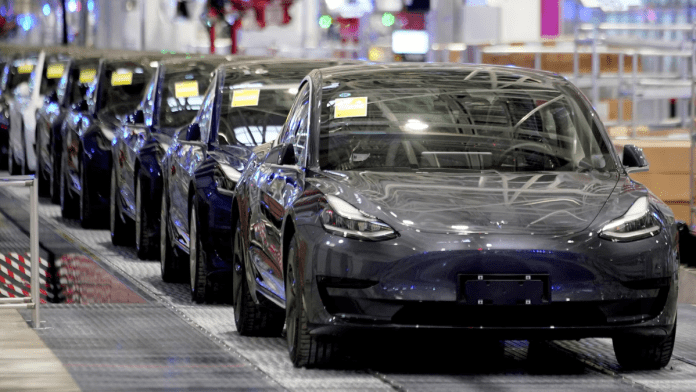🕒 Last updated on July 24, 2025
Tesla’s electric vehicle (EV) sales in China rose by 3.7% in June 2024 compared to the same month in 2023. The company sold around 61,000 vehicles during the month, according to figures released by Tesla China. This small year-on-year growth is important because China is one of Tesla’s largest and most important markets globally.
What makes the June numbers more interesting is that Tesla’s sales in China increased by 59% compared to May 2024. This sharp jump month-over-month shows some recovery, at least for now. However, the yearly growth figure suggests that Tesla’s position in China is growing slowly, especially in a rapidly changing and competitive market.
Tesla has been investing heavily in China over the past few years. The company manufactures cars at its Gigafactory in Shanghai, which supplies both local and international markets. China offers massive sales potential due to its large population and growing demand for clean energy vehicles. However, local market dynamics are now making it more difficult for foreign players like Tesla to dominate.
Global Deliveries Continue to Slide
While Tesla’s China numbers showed a bit of good news, its global sales report revealed ongoing trouble. On Wednesday, the company announced a 13.5% drop in vehicle deliveries during the second quarter of 2024. This marks the second straight quarter of falling deliveries for Tesla, signaling a broader slowdown.
The company missed market expectations, which had predicted stronger global results. A shortfall in global deliveries could mean lower revenue and profit margins, especially at a time when Tesla is facing pricing pressure and higher competition across regions.
This downturn has placed Tesla on track for an annual decline in vehicle deliveries. If this trend continues, 2024 could become the second year in a row in which the company sees fewer deliveries than the year before. For a company known for high growth, such a pattern raises concerns about how it plans to maintain momentum in the near future.
Even though Tesla is still seen as a leader in EV technology, the falling global numbers show that competition is heating up and the road ahead may not be as smooth.
China’s EV Market Heats Up With Local Rivals
One major reason for Tesla’s struggle in China is the rise of strong local competitors. Chinese automakers are growing quickly, especially companies that focus only on electric vehicles. Brands like BYD are now selling more EVs in China than Tesla. These companies are offering cars that are both affordable and packed with features that Chinese customers want.
In addition, new players are entering the market. For example, a large smartphone company recently launched its own electric car model. This vehicle, named YU7, attracted massive pre-orders shortly after its release. The launch shows how fast the Chinese EV landscape is changing. New brands are using their technology experience and customer base to grab attention quickly.
China Willing to Revisit Tariffs, Subsidies in WTO Negotiations with US
As more players crowd the space, Tesla is finding it harder to maintain its lead. Many of these local companies understand Chinese consumer behavior better. They also receive some government support, which helps them stay competitive on price and innovation. Tesla now must work harder to keep its cars attractive to buyers who have more choices than ever before.
Price Cuts and Public Sentiment Weigh Heavily
Apart from competition, Tesla is also facing a serious price war in China. Several Chinese EV companies have lowered their vehicle prices to attract more buyers. These aggressive pricing strategies are forcing Tesla to rethink its own pricing model in order to stay in the race.
Cutting prices can help boost sales in the short term, but it also affects profit margins. Tesla has already made multiple price adjustments in various markets, including China. Yet, the gains from lower prices have not always translated into higher sales.
On top of that, public sentiment toward the brand has shifted in some markets. Controversies linked to the company’s top leadership have sparked backlash. While not the main factor affecting sales, brand image matters in competitive markets like China. Consumers today are paying more attention to the values and behavior of the companies they buy from.
All these issues—falling global sales, rising competition, price cuts, and image challenges—are placing Tesla under significant pressure. Its June sales growth in China, though positive, is modest when viewed against the backdrop of the company’s broader struggles.

